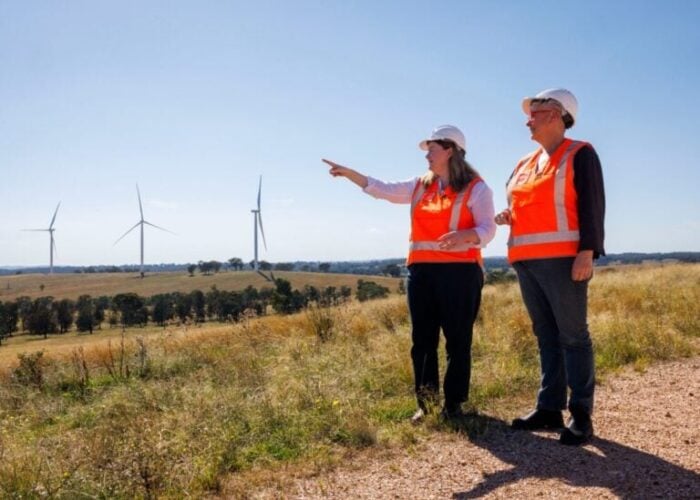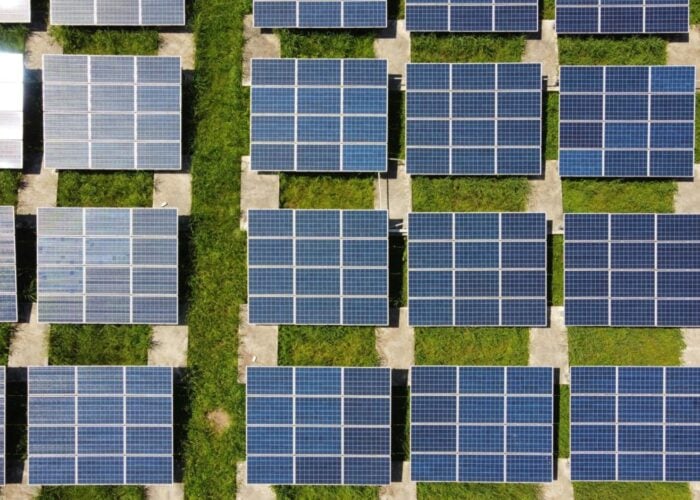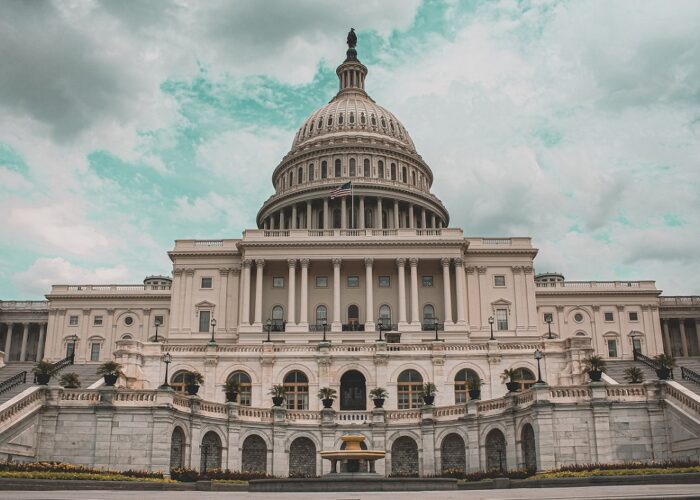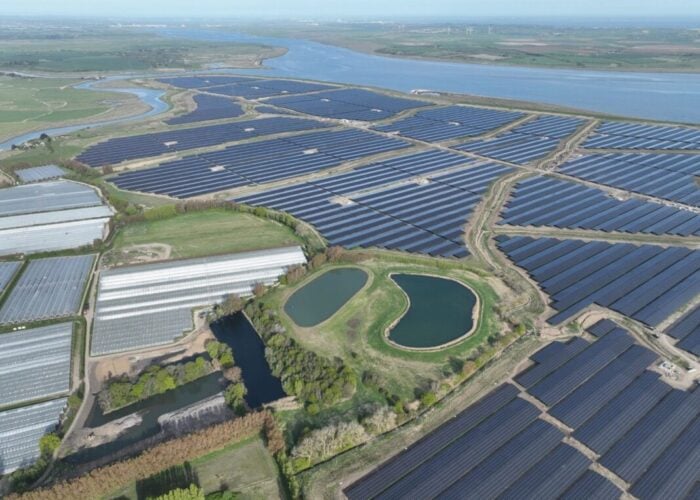Earlier this year, a group of leading scientists and economists published a report making the case for a “Global Apollo programme” to combat climate change. At the heart of their vision was an internationally coordinated programme of research and development on clean energy technologies such as solar, storage and grid management. The aim: to make the cost of new base-load power from renewable sources cheaper than that of coal in all parts of the world by 2025.
As part of our coverage in the run-up to the COP21 talks in Paris later this year, PV Tech spoke to Sir David King, the UK’s former chief scientific advisor and one of the lead authors of the Apollo report. He is currently the UK foreign secretary's permanent special representative for climate change. Under discussion was how the Global Apollo Programme would operate and how he hoped Paris would help secure the necessary political buy-in for the initiative.
Unlock unlimited access for 12 whole months of distinctive global analysis
Photovoltaics International is now included.
- Regular insight and analysis of the industry’s biggest developments
- In-depth interviews with the industry’s leading figures
- Unlimited digital access to the PV Tech Power journal catalogue
- Unlimited digital access to the Photovoltaics International journal catalogue
- Access to more than 1,000 technical papers
- Discounts on Solar Media’s portfolio of events, in-person and virtual
PV Tech: Your report has won some high profile backers, including Sir David Attenborough and many others. What traction has it gained so far at a political level?
Sir David King: The Apollo programme was published by a group of authors outside government in June. The follow-through was on June 8th, the G7 heads of government communiqué; this included the statement that got a lot of media attention, which is decarbonise the world’s economy this century. The second part of the statement was a major thrust in R&D demonstration in renewable energy technology so that we can roll out cheap energy around the world. So that's got the blessing of the G7 heads of government – they've asked for their energy ministers to report back to the next meeting of the G7, which will be next year, when the Japanese will be in the presidency. So it's rolling. And it's rolling in another sense because of Paris. And so there's a useful means of accelerating the process because everyone's trying to get things in before Paris.
PV Tech: What is the idea behind the programme?
Sir David King: The idea of the programme as set out there, but this isn't established with any certainty in the government forum, is that there would be a consortium of countries that would set up a technology roadmap committee, and the technology committee would sort out what research needs to be done to de-risk the energy sector so that the private sector, in the slipstream of this money, can get into the marketplace with all of the sectors' requirements, including still-cheaper photovoltaics, still-cheaper renewable primary sources, storage and smart grids. So that's really the focus of the programme.
PV Tech: You’ve stated publicly before that you think solar offers humanity the best chance of weaning itself off fossil fuels. How much focus is there on solar in the Apollo programme?
Sir David King: The focus isn't only on solar – it's renewables; we are looking at solar, wind, geothermal, wave – all of the above. Farming energy from all of those natural sources is really what we're on about. If you come to solar, we know the most dramatic fall in installation costs have occurred in the solar photovoltaic regime. And this is heavily driven by European Union feed-in tariffs. So creating competitive markets through feed-in tariffs has enabled solar to come into the marketplace and battle against maturer technologies, which is what the fossil fuel technologies are.
But because that has been so successful, and the prices have come down so rapidly – US$50 down to half a dollar a watt, it means that even without subsidies, installation costs of solar PV for sunny regions has become very competitive. But it is true the sun doesn't shine anywhere in the world at night, so energy storage and smart grids have become a part of rolling out base-load electricity from that source. And energy storage and smart grids got no benefits from feed-in tariffs.
PV Tech: What's the process now for getting your programme adopted?
Sir David King: It’s already with the right people – it’s got the attention of the heads of government; that was the whole point of taking it through the G7. I think that all I can say at this stage is watch out for announcements. The IEA [International Energy Agency] has an energy ministerial meeting coming up in November, there’s a G20 meeting in late November; these are all opportunities for heads of government and ministers of energy to develop the elements of the programme into something before Paris.
PV Tech: How would the funding and coordination work at an international level?
Sir David King: Nobody is talking about creating another bucket of money. So it’s not like European framework money that sits in Brussels and then countries bid into it. Your research scientists are funded by your government. Now, there will be collaborations, from one country to another, from one research group to another. But that is all focused on delivering the mission-oriented programme of work set out by a roadmap committee.
PV Tech: The Apollo programme report states that decarbonising the global economy is a technological challenge, it’s also political, and on that front we’ve seen political support for renewables go into reverse in places like the UK. What is your view on cuts to support for renewables in the UK and other places where we’ve seen this happen?
Sir David King: I think the secretary of state’s going to make an announcement on that [cuts to the UK FiTs]. Let me make a general point on tariffs. You introduce feed-in tariffs when the price is US$50 per watt, because otherwise no one will put photovoltaics on their roof. So you have to subsidise to compete with the fossil fuel-based technology. When the price comes down to half a dollar a watt, there’s no longer going to be a market then for feed-in tariffs; governments would be wrong to do subsidies where they’re not needed. What we are talking about through the G7 programme is an alternative to subsidies. It’s looking at public funding going into R, D&D [research, development and demonstration] so as to de-risk for the private sector. That’s not a subsidy process.
PV Tech: What in your view is going to happen in Paris in December?
Sir David King: I think there’s going to be an agreement. I think there are difficulties in reaching an agreement, and the biggest difficulty is international finance, the flow of funds from the developed to the developing world, particularly to the poorest.
The [other] issue is whether countries like India and Brazil, who’ve previously been quite difficult to negotiate with, will deliver. My own view, having visited over 60 countries in the last two years, is that we will find alignment. So there’s going to be an agreement. But it is absolutely crucial that agreement includes reviewability – so the INDCs [intended nationally determined contributions] from each country are seen as the least effort required and that what we need to do is move on beyond that as technologies roll out, as it gets easier, so countries will be able to improve on their nationally determined contributions.
The international agreement in Paris is very important largely because of the momentum that it will generate. What happened after Copenhagen was a loss of momentum and a loss of appetite for action – so we need that agreement. But the actions that are happening on the ground are not really part of the agreement. It’s an umbrella under which we are all operating.
PV Tech: How confident are you that your vision of a world powered by clean energy is possible?
Sir David King: I don’t think it’s a possibility, it’s going to happen – we have to do it. So when the G7 heads of government announced they are going to decarbonise the world’s economy by the end of the century, they mean it. And I believe we have, frankly, no option.
To browse our coverage of the run-up to COP21 and the opportunities it offers solar, click here.







